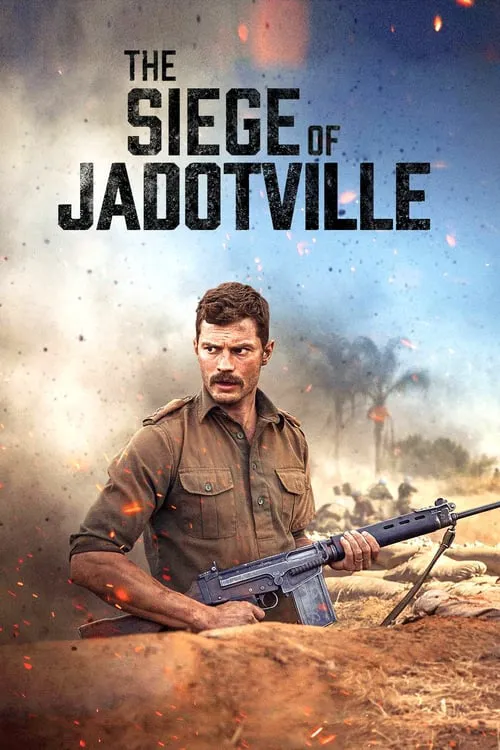The Siege of Jadotville

Plot
In the early 1960s, the Congo is a war-torn nation caught in the midst of a tumultuous independence movement, with the newly formed government struggling to assert its authority amidst the backdrop of European mercenaries and Cold War politics. Against this chaotic backdrop, a young Irish Commandant by the name of Pat Quinlan stands out as a beacon of integrity, courage, and resolve. Quinlan, a highly respected and charismatic military leader from the Irish Army, is chosen to lead a detachment of Irish troops known as A Company, 24th Infantry Battalion, to serve as United Nations observers in the tumultuous Central African nation. Upon arrival, Quinlan's unit is stationed in the strategic town of Jadotville, a crucial location near the shores of Lake Tanganyika. This strategic outpost, however, turns out to be an ill-fated choice. The town is a hub of activity, with various factions vying for control, including the local Congolese rebels, rival warlords, and the omnipresent mercenaries. The Irish troops, who include Quinlan and his men, find themselves at the forefront of the battle against a powerful force consisting of heavily armed French and Belgian mercenaries, led by the ruthless Frenchman, Jean 'Black Jack' Schramme. Initially, Quinlan attempts to maintain a delicate balance of power, establishing tentative alliances with the local warlords and engaging in a series of carefully calibrated negotiations with the mercenaries. However, as tensions escalate, Quinlan comes to realize that the mercenaries will stop at nothing to dominate the region and disrupt the local balance of power. This is especially evident when a group of the mercenaries, under Schramme's orders, brutally executes a group of unarmed prisoners. With the local Congolese forces increasingly unreliable and the mercenaries' influence spreading rapidly, Quinlan's patience wears thin. Sensing that Jadotville has become a pivotal point in the conflict and recognizing the critical need for strong action, Quinlan makes an unorthodox decision to confront the mercenaries head-on. As the fragile calm surrounding the town begins to shatter, Quinlan prepares his men for a decisive battle. On September 13, 1961, A Company's small detachment of approximately 150 troops, with limited artillery and no air support, finds themselves vastly outnumbered by over 1,500 French and Belgian mercenaries, bolstered by heavy armor and artillery. Undaunted by the daunting odds, Quinlan stands firm, deploying his troops in a meticulously planned defensive position. As the mercenaries open fire, Quinlan skillfully directs his men in a series of courageous counterattacks. With their outnumbered forces valiantly holding their ground, the Irish troops suffer heavy losses but manage to repel the initial attacks. In the face of such overwhelming force, one could have expected the outnumbered Irish troops to eventually succumb to the ferocity of the mercenaries' onslaught. However, driven by an unyielding determination to protect their outpost and defend their honor, Quinlan's soldiers persevere. For three days, the small band of Irishmen battles fiercely, repelling wave after wave of attacks, and in the midst of the maelstrom, their camaraderie and esprit de corps are reinforced by their shared ordeal. Tragically, despite their valiant efforts, the outnumbered Irish troops eventually falter and are forced to retreat, their defensive positions becoming untenable. Under heavy fire and battered by the relentless onslaught of the mercenaries, Quinlan ultimately orders a withdrawal to a nearby airstrip, where the surviving troops board a waiting helicopter, barely escaping the town under a hail of bullets. As the survivors reflect on the siege and its aftermath, it becomes clear that their bravery under fire has saved the day by halting the advance of the mercenaries and delaying the outbreak of an even larger conflict. The actions of Quinlan's men demonstrate to the United Nations the strength and resilience of the Irish forces, cementing their reputation as formidable defenders of the UN's humanitarian mission. Ultimately, Quinlan and his men, after a grueling ordeal, receive the honorary title of 'Forsyth Barris' – an extraordinary accolade that acknowledges their courageous performance in the face of overwhelming odds. This remarkable story of a small band of Irish soldiers bravely battling against a far more powerful foe has become an enduring testament to the unbreakable spirit of a nation forged in battle.
Reviews
Recommendations




